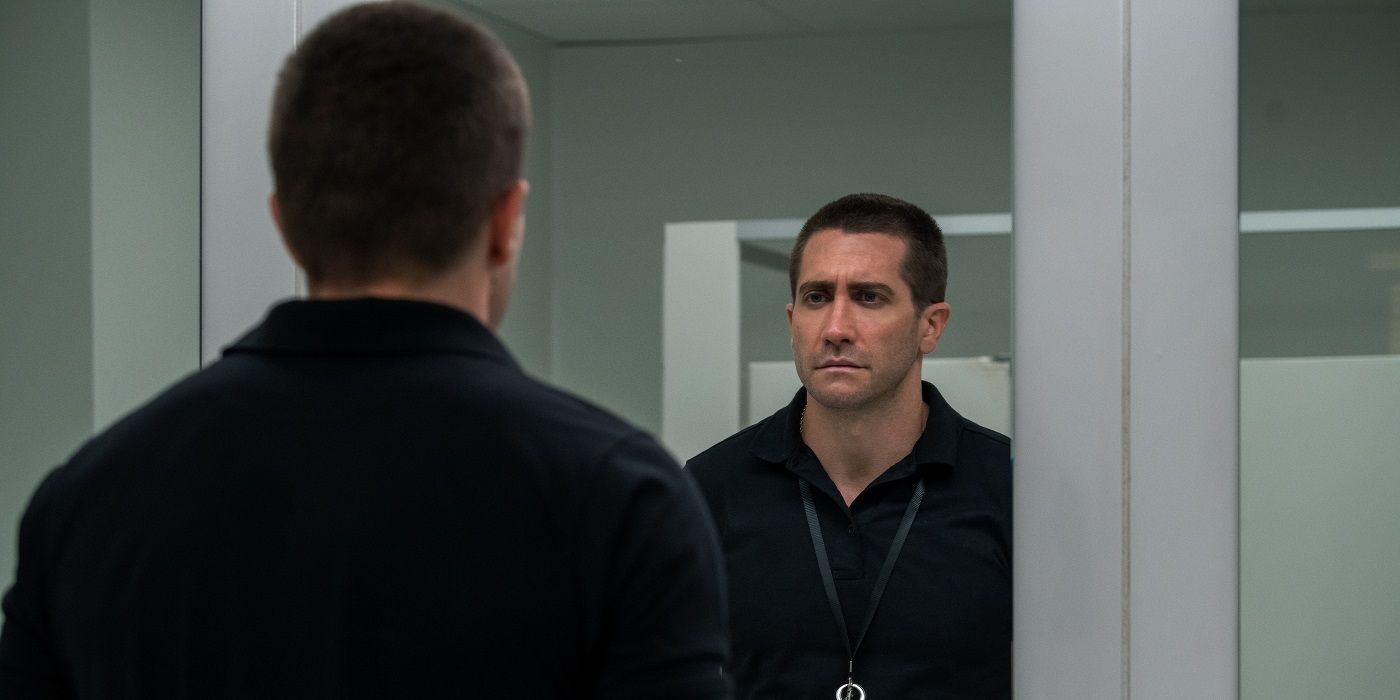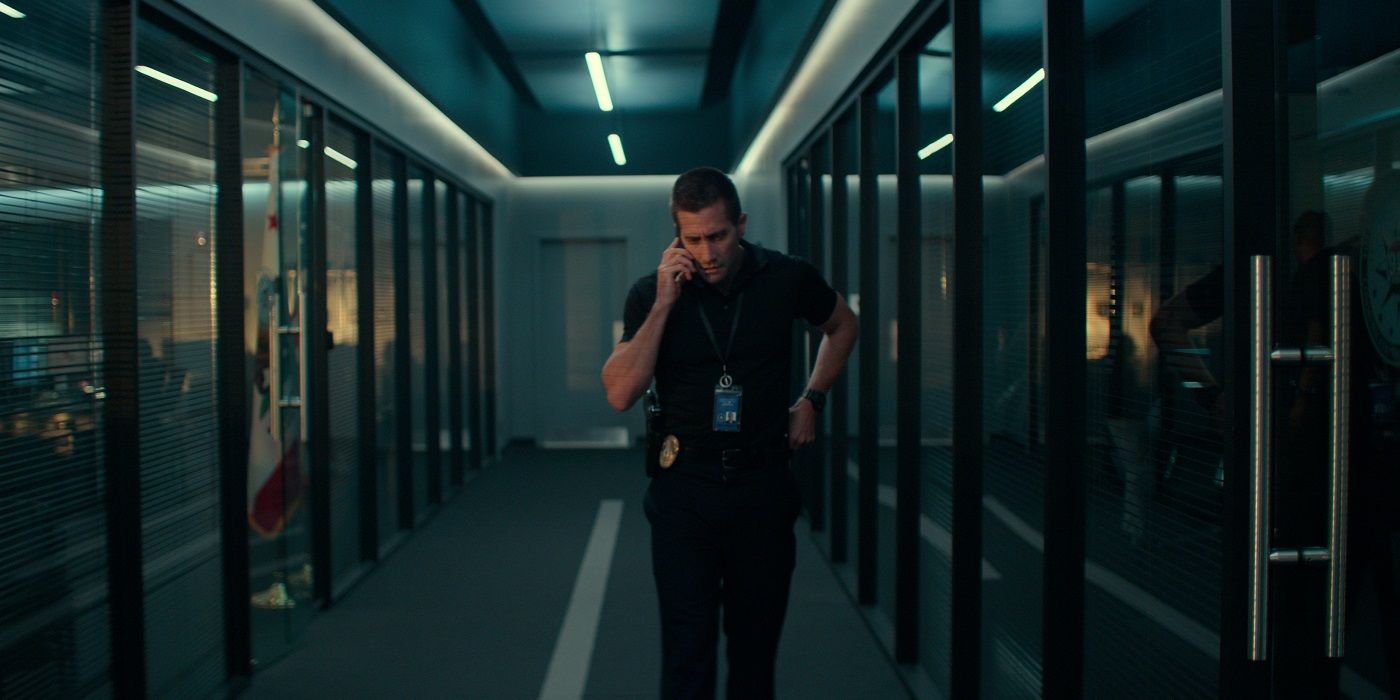The Guilty, director Antoine Fuqua’s latest feature, is one of the many American remakes of international hits that don’t quite get what made the original, a Danish film from director Gustav Möller, so special. Many of these remakes are often of films that have rather precise narratives, with specific events or twists that the audience didn’t see coming the first time, which then gets retold for American audiences. The Guilty is no different. If one were to have never seen the original, then it is a fairly good suspense-filled drama that showcases much of what we like from Fuqua, screenwriter Nic Pizzolatto, and actor Jake Gyllenhaal. Without offering anything particularly interesting or nuanced, The Guilty still has enough to keep audiences engaged and on the edge of their seats.
SCREENRANT VIDEO OF THE DAY
This story follows Joe Bayler (Jake Gyllenhaal), a police officer tasked with answering emergency calls after an unspecified incident sends him to desk duty. During a particularly stressful shift the day before a trial, he answers a distress call from a woman who claims to have been abducted. What transpires over the next few hours is filled with twists and turns as the officer becomes increasingly obsessed with finding and saving this woman.
Related: TIFF Review: Encounter Is An Intriguing, Intense Thriller Led By Riz Ahmed

The story of an officer becoming overzealous about a particular case, abusing resources, being unnecessarily rude to colleagues, and is potentially in trouble for a serious crime is neither new nor innovative. The timing of this narrative could not be more relevant today as a few recent high-profile cases have seen the indictment and conviction of police officers who abuse their power. The Guilty, however, attempts to subvert expectations by giving viewers a complicated lead and presenting insights into the institution he works for through his interactions with fellow law enforcement agents, all while he sits at his desk. Joe is clearly a source of toxicity at work, often being outright rude or dismissive towards his fellow emergency call agents. Although showing disdain for his job, he can still be efficient when the need arises, acting quickly to aid a woman in need of help. As the desperate attempts to save her continue, his outward persona begins to crumble, revealing a broken man who requires help but is not receiving it by the very institution that should help people in need.
Although he is culpable for his misfortunes, The Guilty presents a case for why men like him exist within this system, it doesn’t necessarily provide any answers as to how to stop it. The original film didn’t as well. Ultimately, the narrative falls on being a cautionary tale about the fragility of mental health and a searing reminder that the institutions in place to “help” aren’t adept at doing so. If one weren’t distrustful of law enforcement before, they might be after watching this film. The Guilty operates as a pressure-cooker, with each passing moment adding to Joe’s already fragile mental state. As he becomes increasingly engaged with the abduction, the pressure mounts until he hits a breaking point. Although Gyllenhaal begins the film already at a ten and with very little room to build upon Joe’s underlying aggression and stress, the film makes up for it for when he becomes ever more isolated within the station. Fuqua is a pro and utilizes much of the original’s structure to capture the intensity of this one-man drama.

As a remake, however, The Guilty falls short. It is nothing more than a beat-for-beat copy of the original (which, to be fair, is often the goal for remakes). Pizzolatto adds a bit more to reflect the environment Joe is in, switching the Denmark setting for California, adding in specific details like a fire ravaging the state that make emergency services scarce. There are also added details to illustrate that Joe is struggling with his masculinity amongst other things. For example, he grips his inhaler throughout the movie, refusing to use it as if to show he is capable (or is stronger) without it. However, while both the remake and the original operate as a one-man show, with the leads giving their all as they act through a nightmare scenario through their headset and in their personal lives, the remake ultimately does not compare to the 2018 film of the same name.
From the shine and sheen of the Hollywood production to Gyllenhaal’s rather aggressive approach in his portrayal of Joe takes for granted what made the original so complex and carefully constructed. As closely as the remake follows the original, the updated film does not give itself the benefit of the doubt by how close it skews to what writer-director Gustav Möller created. For a film directed by Fuqua and written by the creator of True Detective, one would hope that The Guilty remake would offer something new or do something different, but it doesn’t do either. The film could be a sure-fire hit on Netflix, though, despite its shortcomings and unjustified existence. It’s a fast-paced, intense, and well-acted drama that doesn’t demand too much from its audience.


